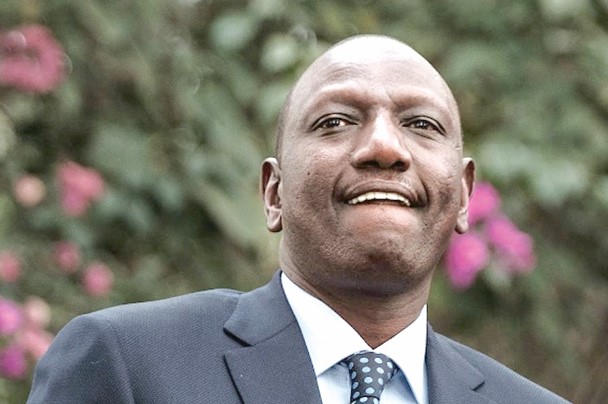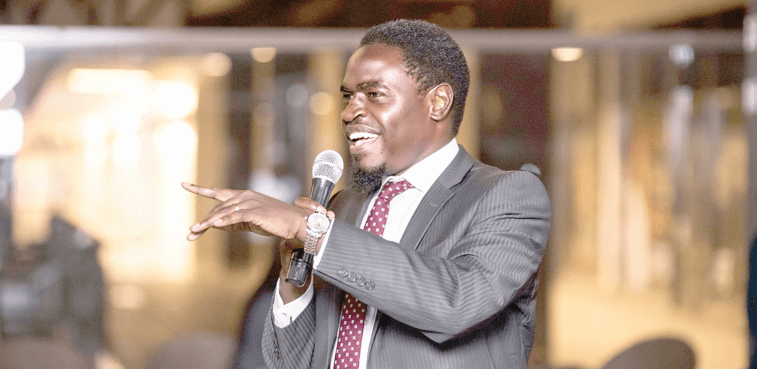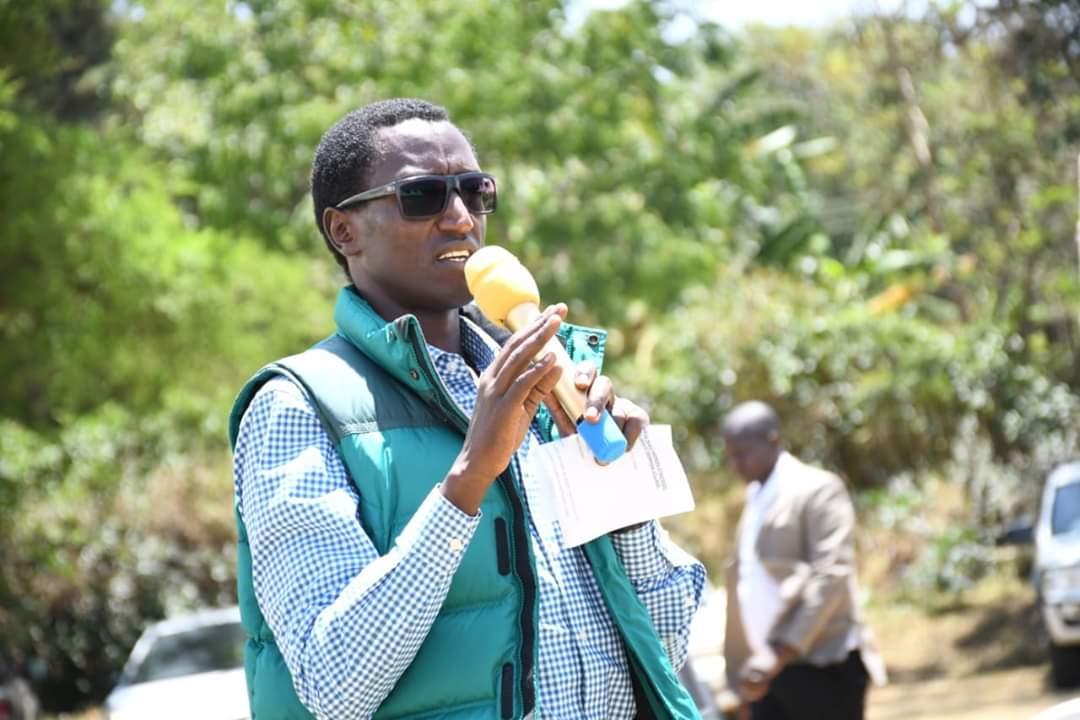Is Ruto Kenya’s most hated president?

Over the last eight months, President William Ruto, once a charismatic leader on the rise, has found himself at the centre of unprecedented intense public backlash and ridicule. His popularity, which had soared as he ascended to the presidency in 2022, has plummeted, with chants of “Ruto Must Go” reverberating across the country.
This dramatic shift in his public image has left many wondering as to why a leader once hailed as a champion of the people became the target of such scorn. The “Ruto Must Go” chants that are now being heard at rallies, protests, and even during official events seem to have become a symbol of the growing disillusionment with his presidency.
What began as isolated protests have now become a nationwide movement, as more Kenyans express their frustration and anger.
“These chants are not just about rejecting Ruto as a person but also represent a rejection of the unfulfilled promises and the growing sense of betrayal felt by ordinary citizens,” says Machakos Deputy governor Francis Mwangangi.
Ruto campaigned on a platform of economic empowerment for the common man, promising a “hustler” revolution, enticing many to his message of hope.
Wave of unhappiness
“He portrayed himself as an outsider, someone who understood the struggles of ordinary Kenyans. His vow to create a more equitable society resonated deeply with millions, and his rise to power was seen as a victory for those who felt marginalised” he says.
In early February this year, 50 youths who were detained during a security operation in Isiolo Town were freed after entering guilty pleas to accusations of disorderly conduct and intoxication.
The action came when a group of young people had heckled President Ruto while he was in town. This outburst reportedly angered the Head of State, according to some residents and activists. This is one of the several incidents where President Ruto has been heckled by members of the public in different parts of the country.
“Ruto Must Go” shouts have been reverberating in both political and non-political demonstrations, indicating a wave of unhappiness that is sweeping the nation.
What began as a call to action during the Gen Z demonstrations last year has now taken on a life of its own. President Ruto has been the target of direct heckling in several places in recent weeks, including Nairobi, Isiolo, Nakuru, and Embu counties. The most recent occurred at Nyayo Stadium in Nairobi during a football match between Kenya and Gabon and during the Naivasha Safari Rally’s final day on Sunday.
Distinguished scholar Prof. David Kikaya told PD Weekendi that most disgruntled Kenyans who are unhappy with President Ruto’s Kenya Kwanza administration were capitalising on the 2010 Kenyan Constitution that gives them freedom of speech to express their anger.
The intensity of the chants have elicited the rare reaction of the Chief of Defence Forces (CDF) General Charles Kahariri who has warned Kenyans not to allow anarchy to take root in the country.
“So when some people are tired of this government, a government they elected on their own and say “must go”, that “must go” must be done according to the Constitution,” Gen Kahariri warned.
Some political pundits believe the chants are a manifestation of Kenyans’ belief that the government’s policies are more focused on political manoeuvring than actual economic relief.
“Historically, in most African countries, you don’t just wake up and talk ill about a sitting African president because there is always a big brother watching. President Ruto’s handlers have detached him from the common man,” said Prof. Kikaya. This trend of chanting “Ruto Must Go” is especially noteworthy because it has spread beyond political events.
Once only heard at opposition rallies, the chant is increasingly heard at nightclubs and even social gatherings. The impromptu nature of the shouts suggests that Kenyans, especially the younger generation, are becoming increasingly irate at the expense of living and what they perceive to be poor governance.
Unfulfilled promises
Governance and policy strategist expert Charles Kelly observed that President Ruto continues to face heckling in various parts of Kenya due to several factors, including economic hardships.
“Many Kenyans are frustrated with the high cost of living, increased taxes, and economic policies that have made life more difficult for ordinary citizens. This has led to public anger during his events,” Kelly told PD Weekendi.
Kelly further said unfulfilled promises are another factor that is making the Head of State unpopular. Some people feel that President Ruto has not delivered on the promises he made during his campaign, such as lowering the cost of fuel and basic commodities, creating jobs, and improving the economy.
“Political rivalries—in some cases, heckling is politically motivated, especially in areas where opposition leaders have strong influence. His critics mobilise supporters to disrupt his meetings,” added Kelly.
But Philip Zeal Chebunet, lecturer and political communication expert claimed that President Ruto’s heckling in public events was being orchestrated by people allied to former Deputy President Rigathi Gachagua.
“These are jokers who are busy saying that Ruto must go. However, the reality on the ground is that the President is popular among the masses. Saying that Ruto must go is a hangover by some people who think that the Gen Z wave will make a comeback,” said Chebunet.
Middle-class factor
Chebunet, a senior lecturer at the University of Eldoret, observed that President Ruto had initiated a lot of development projects across the country, indicating that some of his critics were deliberately out to discredit him. “President Ruto’s administration has proved that there is a lot of development going on across the country, and that is a fact. Let us pay credit where it is due,” added Chebunet.
With the first anniversary of the Gen Z protests approaching, political analyst Martin Andati warned that the anti-Ruto chants appear to intensify. “Kenyans are angry and hungry. The middle class is suffering. There is more to come,” Andati said.
Kelly also agreed that youth discontent could be another factor that is igniting the anti-Ruto chants.
“Young people, who expected job opportunities and better living conditions, have been vocal about their frustrations. Some of them see heckling as a way to express their dissatisfaction,” said Kelly.
He further observed that resentment over the controversial Finance Act, which introduced higher taxes, has sparked protests and resentment across the country.
Personal interests
“Many people blame Ruto’s administration for pushing policies that make life harder. Public perception of leadership among some Kenyans who feel that Ruto’s government is more focused on political deals and personal interests rather than addressing the pressing needs of citizens,” explained the political analyst.
While heckling is a form of political expression, Kelley stated that it also signals deeper issues that the government needs to address.
Prof. Kikaya said apart from Kenyans venting their frustrations one-on-one to Ruto, he should expect more from social media. “It is clear that Kenyans are dissatisfied with what is happening on the ground. Kenyans are frustrated by the government of the day, so Ruto should expect to experience this hostility whenever he is on the ground,” added Prof. Kikaya.
However, Chebunet argued that no kind of heckling will stop the Head of State from delivering his promises to Kenyans. “Chanting Ruto must go is a misplaced priority by some Kenyans. There is no way you can prevent the president from visiting any part of the country. People should allow President Ruto to take development initiatives to all parts of the country because he is a president for all Kenyans,” said Chebunet.












